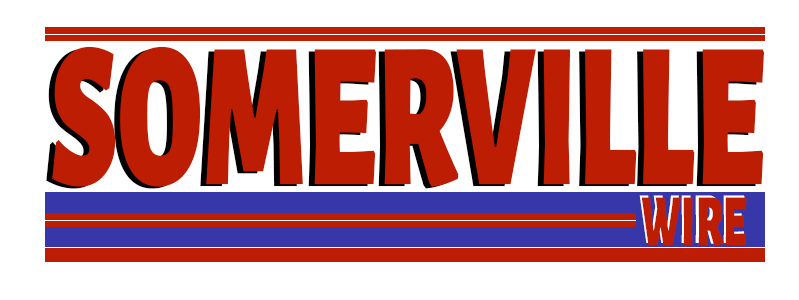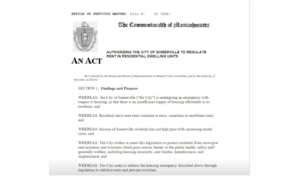Photo by AdobeStock
A team of public health researchers ultimately concluded that Somerville would benefit from at least one supervised consumption site
At a June 10 town hall, Somerville’s director of health and human services Doug Kress led a discussion about research on a prospective supervised consumption site in the city.
As defined in the meeting’s presentation, supervised consumption sites are “hygienic environments where individuals can bring pre-obtained drugs to use under the supervision of health care professionals or trained staff who can respond with oxygen and naloxone in the event of an overdose.” They often offer supplemental health and social services.
Though these sites have been instituted with success in Canada and several other countries, they’ve been barred from the United States by the Controlled Substances Act, which forbids any individual or group from “knowingly and intentionally maintaining a place for the purpose of illegal drug use.”
If successfully established, the proposed site in Somerville would be the first in the nation.
“Keep an open mind and have an open heart,” Mayor Joseph Curtatone said to town hall attendees in his introductory remarks. “Just so you know, not too long ago, I was on the opposite side of this argument. To me it seemed counterintuitive: doesn’t this promote addiction, compound the problem?”
“What really changed me immediately was the data,” he continued, turning the event over to the study team that compiled a Needs Assessment and Feasibility Report for the city.
Brandon Marshall, an associate professor at the Brown University School of Public Health, kicked off the team’s presentation by reviewing the scope of the opioid crisis in Massachusetts. In 2020, he said, the state witnessed 2,104 people die of an opioid-related overdose—a five percent uptick from the previous year. In Somerville, specifically, rates of opioid-related overdose deaths among residents rose by 500 percent between 2012 and 2018.
“Fatal overdoses only represent the ‘tip of the iceberg’ in terms of the true burden of accidental overdose experienced by Somerville residents,” the report elaborates. “The Somerville police and fire departments have responded to more than 100 opioid-related overdoses each year since 2015. Since the majority of persons who experience a non-fatal overdose do not seek emergency services, this figure is likely an under-estimate.”
Marshall transitioned to discussing results from existing supervised consumption sites, which have been found to reduce accidental overdose deaths in their vicinities and increase treatment uptake among their guests. What existing supervised consumption sites haven’t done, Marshall stressed, is encourage an influx of drug users, increase the number of publicly discarded syringes, or escalate crime in their surrounding areas.
“The vast majority of people that use these sorts of facilities live or reside within 20 minutes—about one mile—of the actual program. Very few people come in very far to use these at all,” he said. “[Supervised consumption sites] don’t lead to increased drug related activities in areas where they are implemented. If anything…they improve neighborhood conditions. Once a supervised consumption site is implemented, you’ll see less people using in public, you’ll see less injection-related litter discarded in the environment.”
Alexandra Collins, an investigator based at Brown’s School of Public Health, reviewed the findings of a needs assessment survey that the study team conducted in Somerville. The research group interviewed 47 people who identified as using drugs: 94% said they would avail themselves a supervised consumption site, 51% said they had overdosed at least once in the past year, and 65% said they typically use drugs outdoors. Of the group that indicated they use publicly, just over half said they did so daily.
The team also conducted a general community survey to gauge receptiveness to the proposed site. Of the 615 respondents, 56% indicated they would have “no concerns” with a supervised consumption site placed in their neighborhood. When asked how helpful they think such a site would be in Somerville, they gave an average rating of 8.23 out of 10.
With those and other findings, Collins said, the group concluded that “Somerville would benefit from at least one integrated SCS that includes supervised consumption supports, as well as a range of harm reduction, health and social services.” At the moment, she said, the two most promising locations are Davis Square and East Somerville.
Kress said it’s a “strong possibility” that a nonprofit agency will be charged with running the prospective site. He noted that Somerville is looking into a variety of potential funding sources, such as from a foundation or the city’s “community benefits agreement” with marijuana companies.
“We’re not excluding any potential funding source, taxpayer or not,” Curtatone jumped in to emphasize, asking constituents to remember that the city currently spends “a lot” of taxpayer money responding to overdoses.
“This is a health crisis, and in any health crisis we would rally together—like a pandemic—to keep our community safe,” Curtatone continued. That being said, the proposed site will not be subject to a popular vote: “Trust us to follow the data and the research to make decisions for the benefit of the whole community,” he urged attendees.
When asked about potential legal challenges, Curtatone declared Somerville is “well prepared to fight the legal fight.” But despite the city’s readiness to defend its prospective supervised consumption site, he said a supportive reception would be appreciated.
“We want the legal agencies of the county, the Commonwealth, and the nation to be aligned with us in this endeavor,” he said. “And I’m grateful there’s a much more open and friendly administration in Washington under President Biden.”
According to Curtatone, Somerville is poised to start a movement—not just in Massachusetts, but across the country. “I can’t think of any greater opportunity for us to take, here, than that,” he said.
There will be a series of “community listening and learning” events this July as planning progresses.
The first event on July 13 at 6 p.m. will feature “individuals who are impacted” and a harm reduction specialist. The second event on July 22 at 6 p.m. will feature family stories and explore community impact. The third and final event in the community listening and learning series will take place on July 27 at 6 p.m. and explore impact on business and neighbors. Check the city of Somerville website and social media presences for video links at the events approach.
This article was produced by the Boston Institute for Nonprofit Journalism with funding from its Pandemic Democracy Project.





